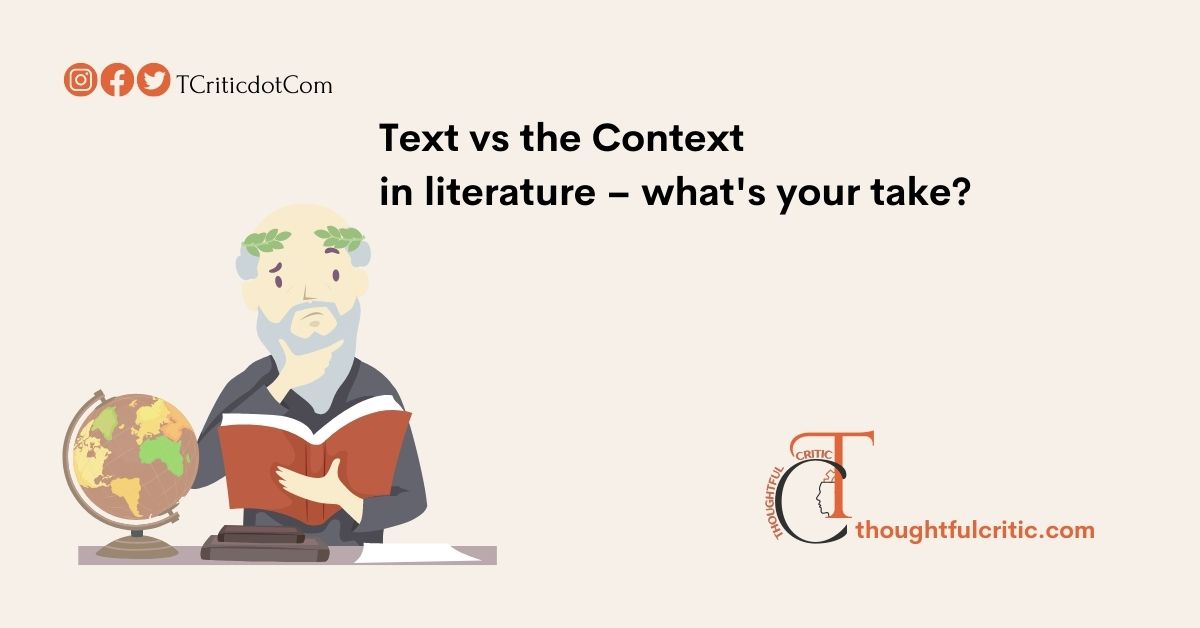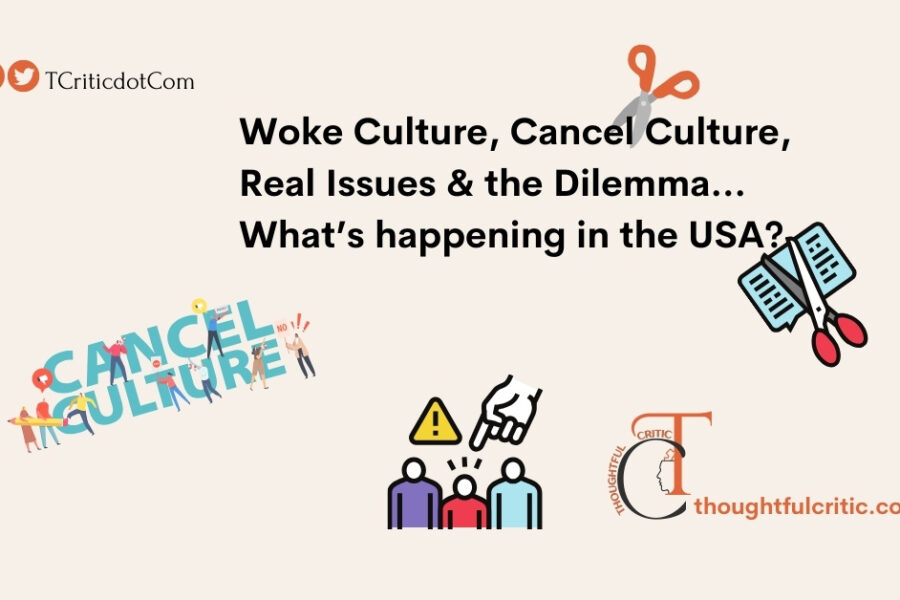Why is the novel 1984 by George Orwell popular? God of Small Things by Arundhati Roy, for that matter, draws its popularity from which source? Why was Lady Chatterley’s Lover so popular in its days? In the contemporary period, why are many novels popular in spite of their mediocre writing – Asura, Sita: the Warrior of Mithila, The Palace of Illusions, and many more Indian novels on the list? If you think carefully, with close attention to the details and with public sentiments in the account, you may find out that the text matters… but not more than the context. In many cases of fiction, context supersedes the value of text! Don’t you agree? We will discuss the same in this article.
Imagine a novel that gets touted for being based on some historical event. However, somehow, it gets leaked in the press or media that the novelist has tried to portray the historical events from a different perspective – adding or subtracting important facts from the history as it happened. So, now, readers and audience, and people at large must find themselves interested in knowing what might the author do and in which direction. Eventually, the way the novel may have been written, the characters and the plot, the style of writing and the narrative as a whole might find themselves in the backseat and what overshadows everything is the context. And this is what happens in many cases. Authors know how to sell the text – use some fancy context!
Well, for many readers and for many critics (for many authors as well), text still holds importance (and it is good on many fronts). And, at times, there are instances in the literature that context only adds value to the value of the text. For example, the novels by Amitav Ghosh in India or those by Ishiguro on the global stage get more important because the text is well-organised, the writing style is amazing and context plays an important part in the overall scheme of fiction. There should be a bonhomie between the text and the context, not an illicit or unethical conspiracy to lure the readers into something that is mediocre and senseless. The novels by Charles Dickens or by George Eliot, for that matter, are well-equipped in terms of textual enhancements. Moreover, these novels become further richer with the context that these authors added to the text. Forced labour, child labour, poverty, poor legislation against the exploitation of labours and increasing chaotic conflict between values, emotions and lust for money are the central context if you read the novels by Dickens. The same, to an extent, is the context for other Victorian novels in the early phase. Later, the novels by authors like Thomas Hardy and D H Lawrence also bring important contexts into play.
In modern times, the contemporary period, however, only context is there to generate a sensation in the readers’ minds. However, there is only context and rarely the text to compensate for the sensation or the heightened claims that these authors and their PR teams make. Chetan Bhagat’s novels are examples of only context and rarely the text. The same stands for the novels by sensational authors like Arundhati Roy and Amish Tripathi. Though Tripathi cannot directly compete with Roy because their genres and writing subjects are very different. However, in terms of promotions and campaigns, they are alike. Arundhati Roy uses her political clout to portray her novels as something big, grand, and important. However, the text, the writing style, and the actual subject matter of the novel along with its treatment belie the hype of the context. The same is true for Amish Tripathi’s work. There is too much hype. It rarely meets with reality, however. And one can say, after carefully examining these trends, that authors have begun to rely on the hype that their campaigns can make about the contexts of the novel rather than the writing style, treatment of the subject matter, and the art of writing.
Historically, the novels by George Orwell, overall, are nothing better than novels by mediocre novelists. However, here, context adds a very good dimension to the works by Orwell and his novels become classics, evergreen and amazing for many readers. This novel may be a good example of context superseding the text and completely overshadowing the possible loopholes and lapses. Modern times have made contexts more compelling and many readers make their reading choices based on the contexts rather than the quality of texts. What do you do?
By Ashish for the Thoughtful Critic platform




